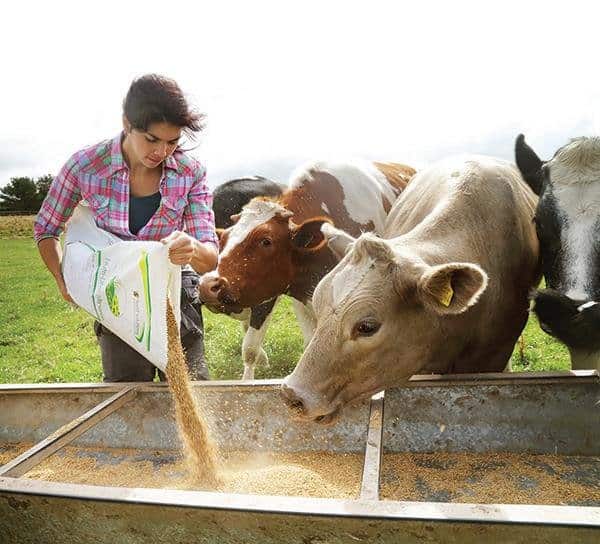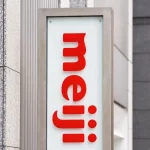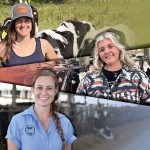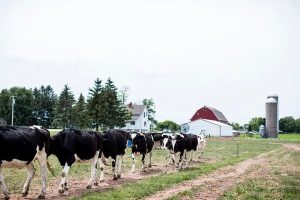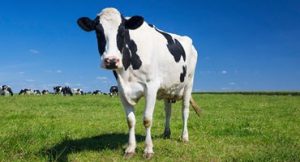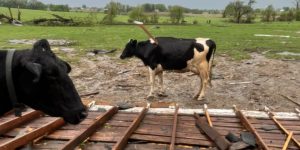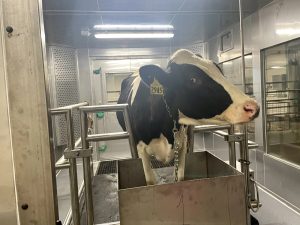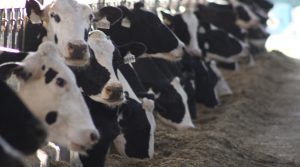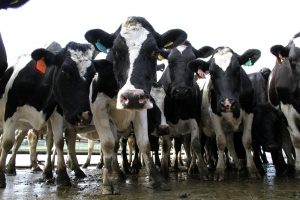
Take 1.7 million dairy cows.
Toss in a greenhouse gas tax credit.
And bingo, you have a stinking mess.
California is now working toward phasing out the credit.
There are a lot of reasons.
But what is driving the greenhouse gas cry du jour is the fuel that dairy cow methane gas produces isn’t green enough.
You might yawn and turn the page to see what weird things the fine folks in Florida have done now, but this has pocketbook consequences for you.
But the state, since dangling enticements to launch the cow manure-to-biogas fuel industry more than a decade ago, is now having second thoughts.
It’s reflected in the California Air Resources Board plans to essentially phase out combustion fuels — of which biogas is one — from powering cars and trucks.
That is the bottom line of the zero emission rule for new vehicle sales that goes into effect in 2035.
However, it puts addressing methane gas generated by cow manure back almost to square one.
Methane gas has been identified as the second biggest source of climate altering greenhouse gases after carbon dioxide.
Thanks to the tax credit and dairy operations much larger than you will find in San Joaquin or Stanislaus counties, there have been 255 expensive dairy manure digesters built in California.
There are more than 1,100 dairies in California with 255 of them sending manure to digesters.
Digesters are also used to breakdown and treat human waste.
Instead of being burned off at Manteca’s wastewater treatment plant, the methane gas is converted into biogas that is much cleaner than oil or diesel to power city vehicles such as solid waste collection trucks with biogas
But that is not good enough for the zealots.
They want zero emissions from vehicles.
Yet at the same time, based on an order issued in September by Gov. Gavin Newsom, the state wants to get greenhouse emissions down to 40 percent of 2013 levels in California by 2030.
But don’t run roughshod over science-drive solutions addressing over environmental concerns.
California for years has been combating the impact of dairy cow flatulence through improved manure management as well as tinkering with feed without eroding the nutritional value of milk cows produce.
The question isn’t whether backing off producing biogas fuels from manure makes sense.
Instead, it is how things interconnect and whether we should temper the use of absolute benchmarks or goals to reduce “this or that”.
The city has been put on notice they need to eventually move toward electric powered garbage trucks and buses because they run 100 percent clean.
The city intends to make a case for an exception.
They city’s data is expected to highlight the overall environmental impact of allowing the city to use the methane gas created by taking the No. 2 that 100,000 plus people do daily in Manteca and a portion of Lathrop and combining it with commercial food waste.
Diverting food waste from landfills where it helps create methane gas is also another state climate goal.
Yet, the state in using environmental bureaucrats outfitted with horse blinders never accounts for how climate edicts have consequences that essentially undermine other climate edicts.
It is ironic that state air quality officials just a few years back couldn’t come up with enough superlatives to praise Manteca for its wastewater/food waste to fuel effort.
Nothing has changed in the bottom line of the process being employed by Manteca.
It is still reducing the release of methane into the atmosphere.
The faulty linchpin to all of this is the pursuit of “zero” goals is having no vehicles powered by “fossil fuels.”
Biogas is a kissing cousin of natural gas.
Natural gas, like oil, is a fossil fuel.
A better way to look at the issue is to view “fossil fuels” not as if we’re talking simply about the remnants of dinosaurs and bogs et al but the breakdown of all organic material.
Organic material doesn’t just include the bodies of mammals, birds, fish, and vegetation “wasting away to nothing” or if you prefer completing the “dust to dust” process.
It also includes the solid waste — and in the cases of life forms than can do so — gas that is passed while they are living and breathing.
The premise of manmade climate change has gone from modern practices such as providing power to including everything man naturally has to do to stay alive such as consuming protein and doing the No. 2.
The perfect illustration is when you mix water policy with greenhouse gas policy and weigh what is the best way to produce protein.
A diet based on meat and dairy products to deliver the bulk of protein needs not only produces too much greenhouse gas thanks to animal flatulence and manure but it takes too much water to grow their feed and process the protein they produce into food.
But at the same time major sources of protein such as nuts — read that almonds — are decried by a narrowly focused climate subgroup as using too much water.
We are not pursuing holistic climate policies.
Instead, we are using a balkanized approach and going whole hog with solutions we come up with addressing one part of the climate puzzle regardless of the collateral damage it does in undermining efforts to address other environmental concerns.
It’s not that we shouldn’t address environmental issues.
It’s just that greenhouse gas solutions should not be bestowed sacred status when making political decisions.
We need to strike a balance with an approach that understands the environment is interconnected.
